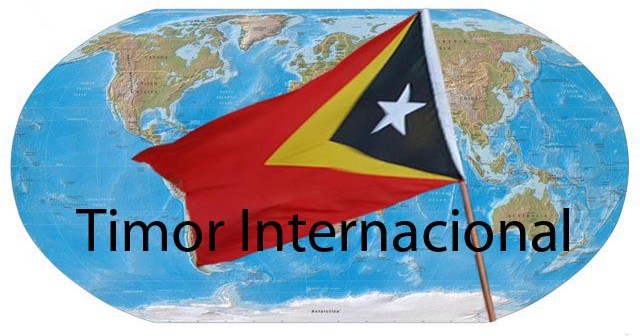JAKARTA, Indonesia (AP) — East Timor is drawing up plans for a deep sea pipeline and petrochemicals plant to tap an estimated $90 billion in disputed underwater oil and gas, company and government officials said, in a rare opportunity for one of Asia's poorest and smallest countries to boost its economy.
It is the latest move in a high-stakes battle with Australia over where the oil and gas in the Greater Sunrise field — containing about 300 million barrels of light oil and 8.3 trillion cubic feet of natural gas — should be processed.
It also shows that East Timor, which became Southeast Asia's youngest democracy in 2002, is intent on protecting its economic interests after emerging from 500 years of foreign occupation.
"It means a lot for this little country," said Alfredo Pires, secretary of state for natural resources, by telephone from Dili, the Timorese capital. "We are just coming out of independence. We are looking for the creation of possible industries and we really see this as part of an engine of economic growth."
Between the Greater Sunrise field and East Timor lies a deep gash in the ocean floor, the 11,000-foot-deep Timor Trough, which Australia and its largest oil company, Woodside Petroleum Ltd., have argued makes it expensive and maybe even impossible to build a pipeline running north to the tiny state's shore.
But The Associated Press has learned that East Timor has commissioned a survey that suggests the pipeline is feasible. U.S. piping specialist DeepGulf Inc. says that so far its survey indicates that building such a 125-mile pipeline would work, Marc Moszkowski, the company's president, told the AP.
Woodside and a group of companies licensed to develop the Greater Sunrise field want to build a 530-kilometer pipeline running south to Darwin, where ConocoPhillips, of the group members, has built a $5 billion natural gas processing plant.
Australia and Woodside argue that laying a pipeline to the East Timor would undercut profits and expose supplies to political upheaval, while Darwin is stable.
The Greater Sunrise field lies almost entirely in territory claimed by both countries and neither can exploit it without approval from the other side. Under the current licensing agreement, they have until 2013 to sign a development plan.
Gunbattles between rival security forces killed dozens in Dili in 2006 and toppled the government, while rebel troops in February tried to assassinate President Jose Ramos-Horta and Prime Minister Xanana Gusmao. Australia has around 1,000 peacekeeping forces stationed across the mountainous nation of around a million people.
Still, the venture partners, which also include Royal Dutch/Shell and Osaka Gas, are "prepared to consider the results of the Timor Leste government's independent study," Woodside said in a statement, the country's official name.
Parts of the Timor Sea have been divided up into a complex system of revenue sharing zones with Australia, some based on boundaries drawn up more than three decades ago when the region was a Portuguese colony.
There is no permanent maritime boundary and large portions remain fiercely debated. Lawyers hired by East Timor to draw up a boundary based on international law place the entire Greater Sunrise field in its territory.
But the case cannot be heard by the U.N.'s courts for territorial disputes — the International Court of Justice and the International Tribunal for the Law of the Sea — because of legal exclusions obtained by Australia months before East Timor became independent in 2002.
The Australian government is aware of the new pipeline study, said Tracey Winters, a spokeswoman for Resources and Energy Minister Martin Ferguson.
The Australian government is aware of the new pipeline study, said Tracey Winters, a spokeswoman for Resources and Energy Minister Martin Ferguson.
"At the end of the day the decision on the location will be a commercial one," Winters said. Both countries "would like to see this developed as soon as possible."
Paul Cleary, author of the book "Shakedown: Australia's Grab for Timor Oil," accuses Canberra of applying cutthroat negotiating tactics.
"The pressure applied by Australia meant that the new country really didn't stand a fighting chance," wrote Cleary, who also advised the government in Dili on oil and gas policy.
Winters declined to comment on those allegations.
Winters declined to comment on those allegations.
Pires said a new commercial national oil company is being created to invest "hundreds of millions of dollars" DeepGulf said it would cost to build the pipeline.
Fifteen companies from five nations have already expressed interest in purchases of oil and liquid natural gas, he added.
To bolster the argument for a pipeline to its coast, East Timor is conducting a joint feasibility study with Malaysia's national oil company, Petronas, for a multibillion-dollar liquid natural gas plant and petrochemical industry due to be released late October, Pires said.
Direct spin-off for the emerging democracy would include a new 100-megawatt power plant that could eliminate national electricity shortages, a petrochemical storage and shipping port and thousands of jobs that could cut into towering unemployment of around 50 percent.
Tax revenue from Greater Sunrise would reach around $3 billion over several decades for the plant's host country, according to estimates, on top of more than $10 billion from sales.
With all sides holding deeply entrenched positions, the fight over the Timor Sea could drag on for years.
Source: Associated Press




